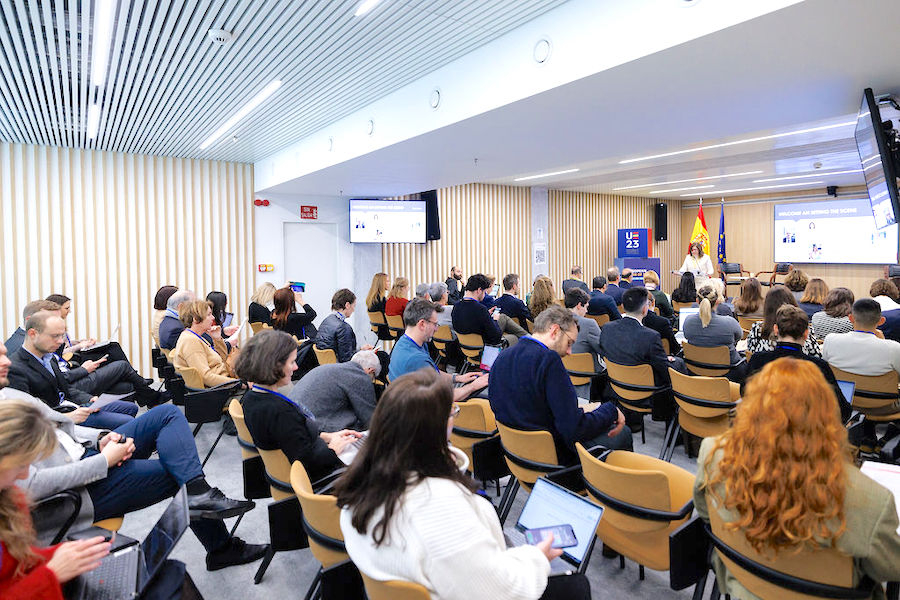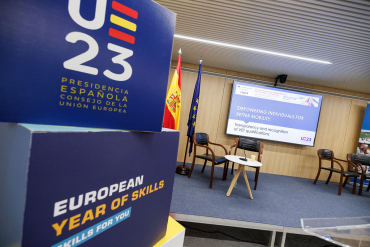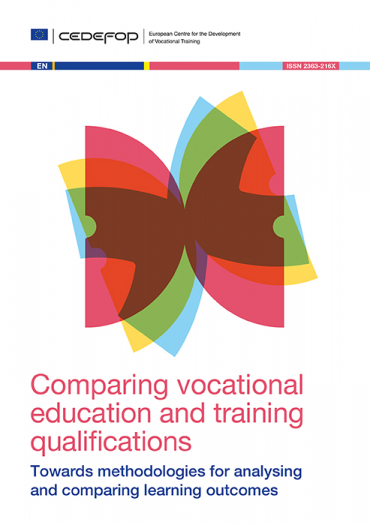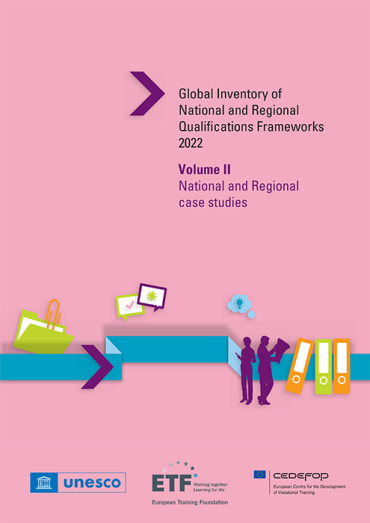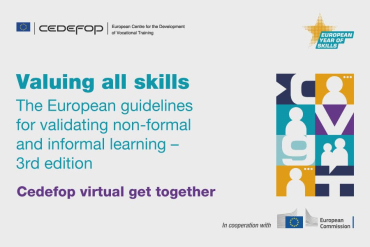The policies and steps taken to empower individual learners and workers in the European Union for better mobility were discussed at the 15th Cedefop Brussels seminar, which was organised with the Spanish EU Presidency on 28 November.
The transparency and recognition of vocational education and training (VET) qualifications, based on Cedefop research, were at the centre of the discussions.
Cedefop’s Head of Department for VET and Qualifications Loukas Zahilas welcomed the more than 140 participants (in Brussels and online) and moderated the event.
In his opening remarks, Cedefop Executive Director Jürgen Siebel noted: ‘Today’s theme is high on the political agenda, including the agenda of the Spanish Presidency. This seminar addresses the increasingly dynamic European landscape, marked by a high degree of citizen mobility for learning and employment. This translates into a need for transparent qualifications. Recognising the value of what people know and can do, whether acquired in formal or non-formal settings, is a fundamental step to ensure fair mobility and social integration for learners and employees moving across Europe.’
On behalf of the Spanish Presidency, Yolanda González, Deputy Director at the Spanish Ministry of Education, Vocational Training and Sports, spoke of the need to increase the quality of qualifications and the number of professionals in VET, to embrace differences in systems, shift focus from academic to professional and establish common methodologies.
European Commission’s Chiara Riondino outlined the EU’s priorities on learners’ and workers’ mobility and transparency of qualifications, stressing that European countries have a strong tradition of working together on transparency tools, which makes it possible to understand a qualification from one country in another.
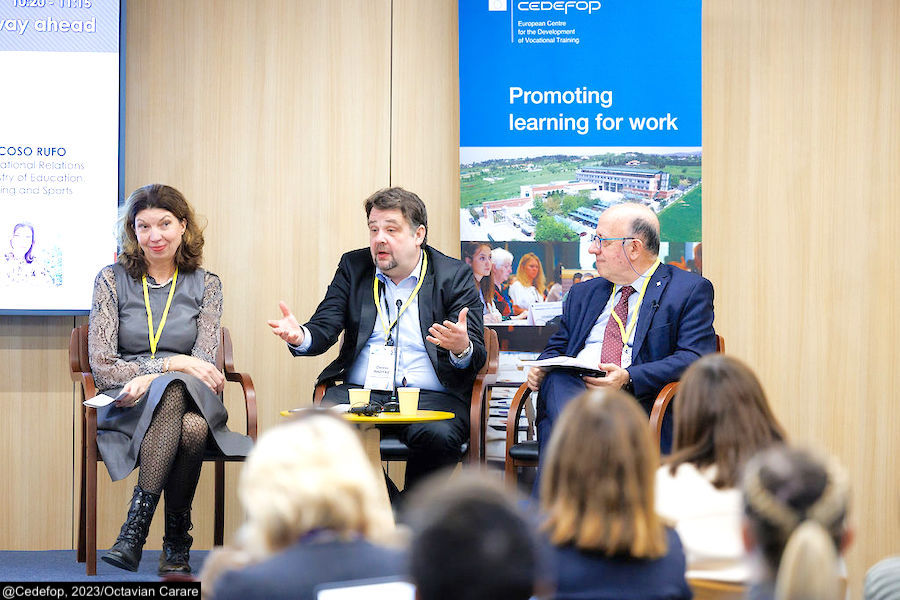
Dennis Radtke MEP, a member of the European Parliament’s Committee on Employment and Social Affairs, in his intervention during the panel discussion, said that, in preparation for the green and digital transitions, ‘the EU has been setting the right priorities – the Parliament’s job, is to monitor the implementation.’ He added that the European Year of Skills has raised more awareness on skills-related issues and reminded participants that an integral part of the EU’s internal market is free movement not only of goods but also of workers.
The panel discussion addressed the topic from the Commission, national and research perspectives, and was moderated by Mr Zahilas, who stated that policies promoting a shift towards more open and flexible systems seem anchored in the principles of transferability of learning outcomes and of transparency of qualifications and systems. For the way ahead, there is still a pressing need for transparency and recognition.
Cedefop expert Zelda Azzarà presented the agency’s ongoing three-year project on transparency and transferability of learning outcomes. The project looks at European and national policy initiatives over 20 years (2000-20) to examine their relationships and the extent to which they have supported individual citizens’ lifelong learning and mobility. It will further explore the impact of European and national policy developments on individuals and will develop future policy scenarios towards 2040. An online workshop in February 2024 will discuss making progression in learning a reality and putting learners in the spotlight.
View the event's photo gallery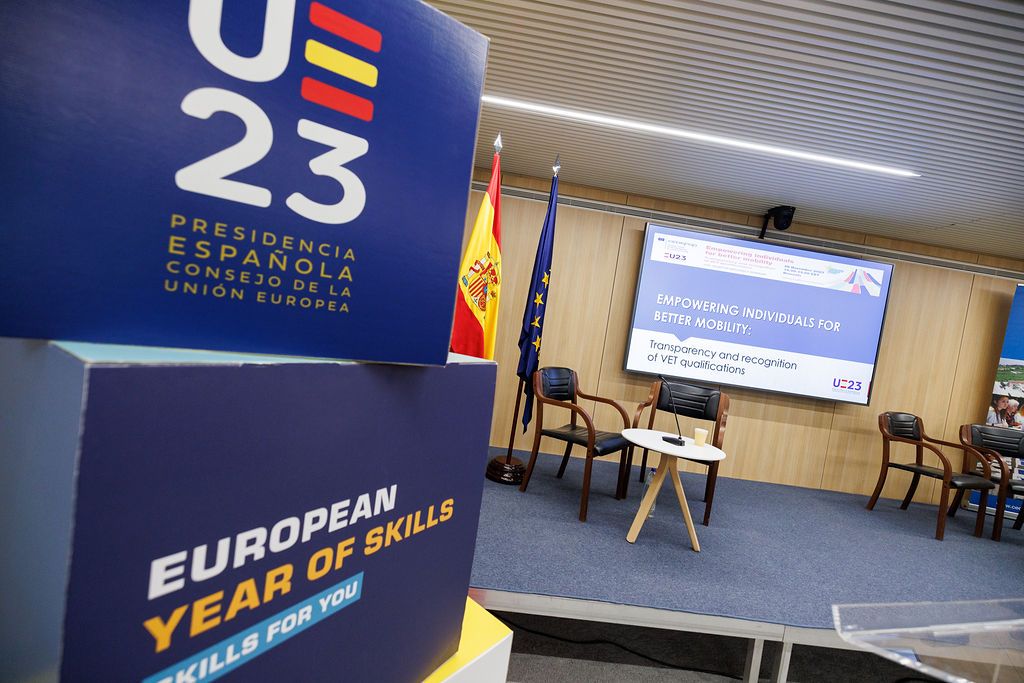
And watch the whole seminar here
Closing the seminar, Mr Siebel concluded: ‘It is important to take stock of the situation after more than 20 years of EU cooperation: to sum up all the transparency initiatives and describe how they are linked. This is done for the first time in a systematic way, based on research, and paying attention to the whole lifelong learning spectrum. There is already evidence of the impact of transparency initiatives. Cedefop will continue to work and provide its expertise for informing the future policy debate towards 2040.’
